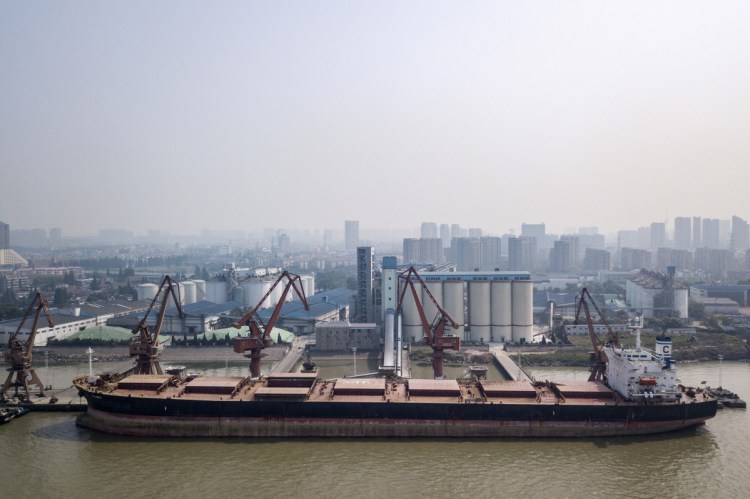BEIJING — Some U.S. companies are pulling back investments in equipment and jobs “as a result of uncertainty over trade policy,” the Federal Reserve warned Thursday, adding that the U.S. clashes with trading partners were already hurting the stock market and could also harm overall economic growth.
The statement by the Fed, as part of a recap of the U.S. central bank’s June meeting, was the latest indication of the high stakes of President Trump’s brewing trade war. The conflict will escalate further Thursday night when U.S. tariffs on $34 billion worth of Chinese imports take effect, with Beijing planning to swiftly respond on an equal amount of goods.
In its statement, the Fed indicated it planned to continue gradually raising interest rates as it seeks to return monetary policy to a more normal state – after years of extraordinary efforts to stimulate growth – but cautioned that it was watching the trade conflict carefully.
Most Fed senior officials, the statement said, “noted that uncertainty and risks associated with trade policy had intensified and were concerned that such uncertainty and risks eventually could have negative effects on business sentiment and investment spending.”
Here in Beijing, in response to the U.S. tariffs, border officers could receive the order as early as midnight to slap new taxes on hundreds of U.S. products, including pork, poultry, soybeans and corn. That would begin an unprecedented commerce battle between the world’s two largest economies, a conflict that analysts fear could rattle markets, cripple trade and undermine ties between the United States and China at a time when the administration seeks Beijing’s cooperation on North Korea.
As the global business community watches the clock, China is moving to pin the fallout on Trump, framing the U.S. as a bully that the Asian nation is forced to confront. A state media editorial this week called the United States’ “dictatorial bent” a global threat, while officials said China will “absolutely not” take the first swing.
“The United States will be opening fire on the whole world and also opening fire on itself,” Gao Feng, a spokesman for the Chinese Commerce Ministry, said Thursday.
Those measures appear to be aimed at the United States’ heartland, which helped lift Trump into the White House. Farmers in the overwhelmingly red Midwest fear they will lose access to China’s lucrative market and be left with the bill for excess produce and livestock.
What happens next is anyone’s guess, analysts say, since both sides have pledged not to back down. “It’s a dark day tomorrow for global trade,” predicted Jörg Wuttke, former president of the European Union Chamber of Commerce in China.
Uncertainty hangs over companies, supply chains and investment plans, he said. U.S. firms in China are already reporting spikes in random inspections at ports.
One U.S. manufacturer said Chinese authorities on average used to inspect 2 percent of the vehicles it sent abroad. Since June, agents have taken a closer look at every product.
“Don’t expect the ‘war’ to be out in the open in some imaginary tit-for-tat tariff battlefield,” said James Zimmerman, a partner in the Beijing office of international law firm Perkins Coie LLP. “The real battle will be on the flanks” – in the form of unnecessary inspections, product quarantines and heightened regulatory scrutiny.
The conflict over U.S.-China trade has been brewing for years but has intensified rapidly in 2018. On April 3, the U.S. released a list of targets for proposed tariffs on $50 billion worth of Chinese imports, taking aim at high-tech and industrial goods. On April 4, China fired back.
In the months since, the tit for tat has escalated, with the U.S. threatening successive rounds of tariffs on goods valued at hundreds of billions of dollars. China vowed to match U.S. moves, using both quantitative and qualitative measures.
Kenneth Jarrett, president of the American Chamber of Commerce in Shanghai, said a sense of anxiety has settled over business in the port city.
“My hope is that with this start, people will feel that the cost is too great and we will not move on to the second wave,” he said.
Thus far, Trmp has shown no interest in a last-minute truce. Though he has called Chinese President Xi Jinping a “good friend,” he has expressed no apprehension over what could happen in either country when the first tariffs land.
“Trade wars are good,” Trump recently tweeted, “and easy to win.”
Send questions/comments to the editors.



Comments are no longer available on this story